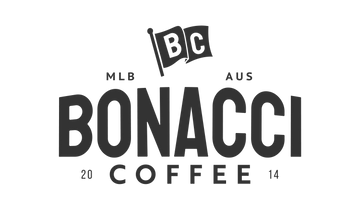Decaf Coffee Beans
Decaf Coffee Beans
What is decaf coffee?
As the name suggests decaf coffee is decaffeinated coffee whereby 99% of the caffeine is removed from the beans. It’s a fantastic alternative for people who want the flavourful taste of coffee without the intake of caffeine.
There are a number of different ways you can remove caffeine from coffee which include water, organic solvents or carbon dioxide, but we’ll talk about that later. One aspect of decaf coffee we’d like to explore is the health benefits.
Pregnancy, breastfeeding and caffeine
“I’m pregnant, now I’m not allowed to drink coffee! This sucks!†Sound familiar?
Pregnant women are encouraged to steer clear of an array of food and drink they might normally enjoy in order to help protect their growing babies. Think sushi, soft cheeses, cold seafood, soft-serve ice cream, and alcohol — but does your daily cup, or cups, of coffee belong on this list too?
During pregnancy, caffeine clearance from the mother’s blood slows down significantly, hence why limiting your caffeine intake is recommended. If you are pregnant and tallying your daily intake, you need to be aware of all the sources of caffeine you consume.
Along with tea and coffee, keep an eye on caffeine-containing products, such as chocolate, cola and other soft drinks, energy drinks, and even some new forms of cereals, biscuits, and chips. It is also worth noting that caffeine levels will vary between products and its effects will be different for everyone.
Australian guidelines recommend you limit your intake to less than 200 milligrams per day. If a mother smokes, this can compound the effect of caffeine on her baby, so mothers who smoke should limit their caffeine intake further.
200mg is about one to two instant coffees a day and two to three cups of tea. Also bearing in mind what kind of coffee you are consuming, see the below chart.
The approximate amounts of caffeine found in food and drinks are:
- one cup of instant coffee: 60 – 80mg
- one shot espresso (used in latte’s): 60-120mg
- one cup of filter coffee: 60 – 120mg
- one cup of tea: 10 – 50mg
- one 375g can of cola: 48.75mg
- one 250ml can of energy drink: 80mg
- one 100g bar of milk chocolate: around 20mg
Most breastfeeding mothers can consume a moderate amount of caffeine (eg a few cups of coffee or tea each day) without it affecting their babies, between 200mg and 300mg. However, newborn babies however can be particularly sensitive to caffeine. This is because it can take a newborn baby a long time (ie half-life of 50–100 hours) to process caffeine. By 3–4 months, however, it takes a baby only about 3–7 hours.
Our Swiss Water Process decaf coffee is the perfect alternative, it is 99.9% caffeine free. Meaning, you can still have your 3 cups of coffee a day, without the caffeine stimulates and risks. Our Ethiopia Sidamo Decaf goes through the chemical free Swiss Water Process and has been tested and proven repeatedly to remove 99.9% of caffeine from the coffee beans.
Decaf coffee beans and the exact same beans, roasted to perfection and used to create that prefect latte you desire when you sit down at your favourite café, just minus the caffeine. So, what are you waiting for, switch over to decaf today!
*All the above information is general information only. For detailed personal advice, you should see a qualified medical practitioner who knows your medical history. It is recommended that pregnant women restrict their caffeine intake to 200 mg per day to reduce the risk of adverse effects to the pregnancy and the foetus.
Source: https://www.abc.net.au/life/do-pregnant-women-need-to-give-up-coffee/11296598
https://www.breastfeeding.asn.au/bfinfo/breastfeeding-and-maternal-caffeine-consumption
https://www.pregnancybirthbaby.org.au/caffeine-during-pregnancy
How decaf coffee is made from Swiss Water Process themselves
Beans arrive from origin
They have been shipped to us from the finest growing regions around the world. Cleaned and hydrated with pure, local water to prepare them for caffeine removal, these beans are beginning their journey to becoming amazing decaf coffee.
The end of the line for caffeine
Our internally developed Green Coffee Extract (GCE) is introduced to the beans and caffeine removal begins. Caffeine ventures out on its own, away from the coffee beans into the GCE until the ratio of soluble compounds in the GCE to the compounds in the coffee reach the point of equilibrium. Caffeine and GCE flow continuously through our proprietary carbon filters until all the caffeine is trapped and separated from the GCE. Then the GCE is refreshed so that it can be used again and again to remove more caffeine.
Continuous monitoring
For the next 10 hours, our team continuously monitors the process and caffeine levels in each batch we are decaffeinating. We monitor time, gauge temperature controls, and check the levels on the GCE flow. The result of all this loving attention to detail is worth it -- 99.9% caffeine-free coffee.
Into your cup
Finally, the decaffeinated green beans are shipped to the roasters and the specialty coffee brands we work with, so that the beans can be turned into something special. We’re privileged to be one small stop on the amazing journey that brings coffee from unique places of origin to your cup.
Is decaf coffee bad for you?
Decaf coffee is certainly not bad for you, in order for decaf to receive it's "decaffeinated" tick of approval it must be 97% caffeine free. We strictly stick with Swiss Water Process and the team there claim to have their process down to 99% caffeine free!
We believe the Swiss Water Process (Chemical Free) is the best and cleanest processing method and we are super confident to share that with our beloved coffee family.
Antioxidants and nutrients
It’s regarded that coffee is the biggest source of antioxidants in the Western diet. However, when compared to standard coffee, decaf typically has 15% drop in antioxidants. The main antioxidants in coffee are hydrocinnamic acids and polyphenols.
These two antioxidants help reduce ageing, blood clots, blood sugar levels and heart disease risk while also improving brain function, digestion and protection against some cancers.
1 cup of coffee also contains a small amount of your recommended daily intake for the following nutrients: 2% magnesium, 4% potassium and 2% vitamin B3 — so drinking a few cups a day can quickly add up.
The other methods
There are four ways we can decaffeinate coffee, split into two categories:
- Solvent-based
- Non-solved based
Solvent-based: indirect-solved and direct-solvent
Non-solvent based: swiss water and carbon dioxide
The solvent method involves using chemicals added to the beans to directly and indirectly remove the caffeine from the beans. These chemical solvents can differ depending on the preference of the roaster but typically methylene chloride and ethyl acetate are used.
The roasting process after the beans have been exposed to the solvents means it is unlikely there will be traces left in your coffee. However, our choice of using the swiss water process means there is no chance of these chemicals being left in your coffee cup.
Buy our organic decaf coffee beans
If you’re after decaf coffee don’t compromise of only when you can try our Ethiopia – Sidamo decaf coffee. It’s our signature decaf coffee option that offers quality single origin coffee without the caffeine hit.
st beans from Ethiopia, used the swiss water process, to create a sensory decaf coffee experience perfect for decaf espresso lovers.
This decaf coffee is so good people don’t even realise it’s decaffeinated. This coffee is a medium roast with a touch of lime, orange, peach and caramel. It’s a sweeter experience, almost like drinking tea that has a subtle body of nougat and honey.
Melbourne Decaf Coffee Beans
We love coffee just as much as you love drinking it. That’s why we supply decaf coffee for Melbourne, Sydney and Australian businesses nationwide. We’d also love to hear from you as your feedback helps us produced the very best speciality coffee we can. Get in touch today to talk about anything from coffee to roasting.



